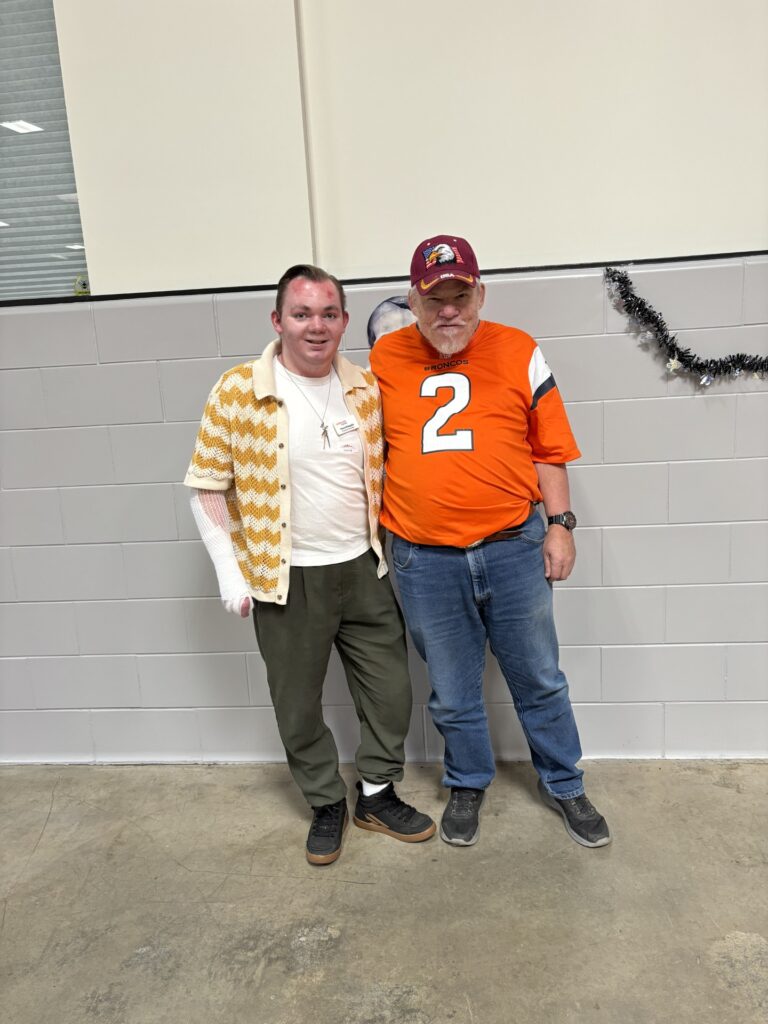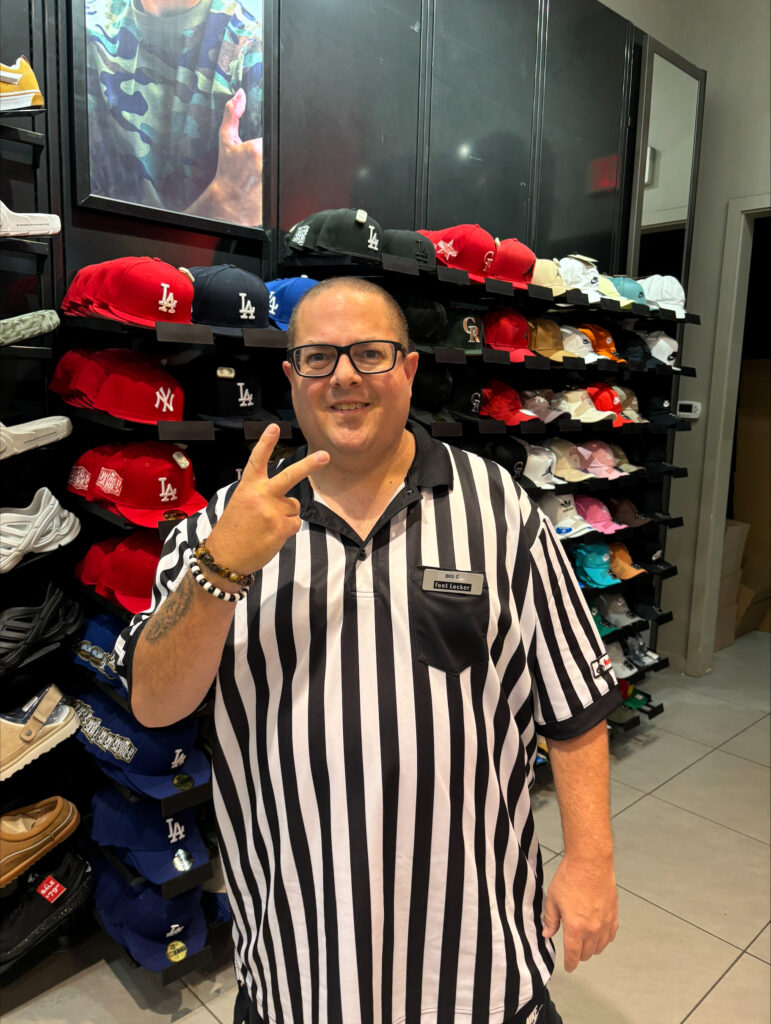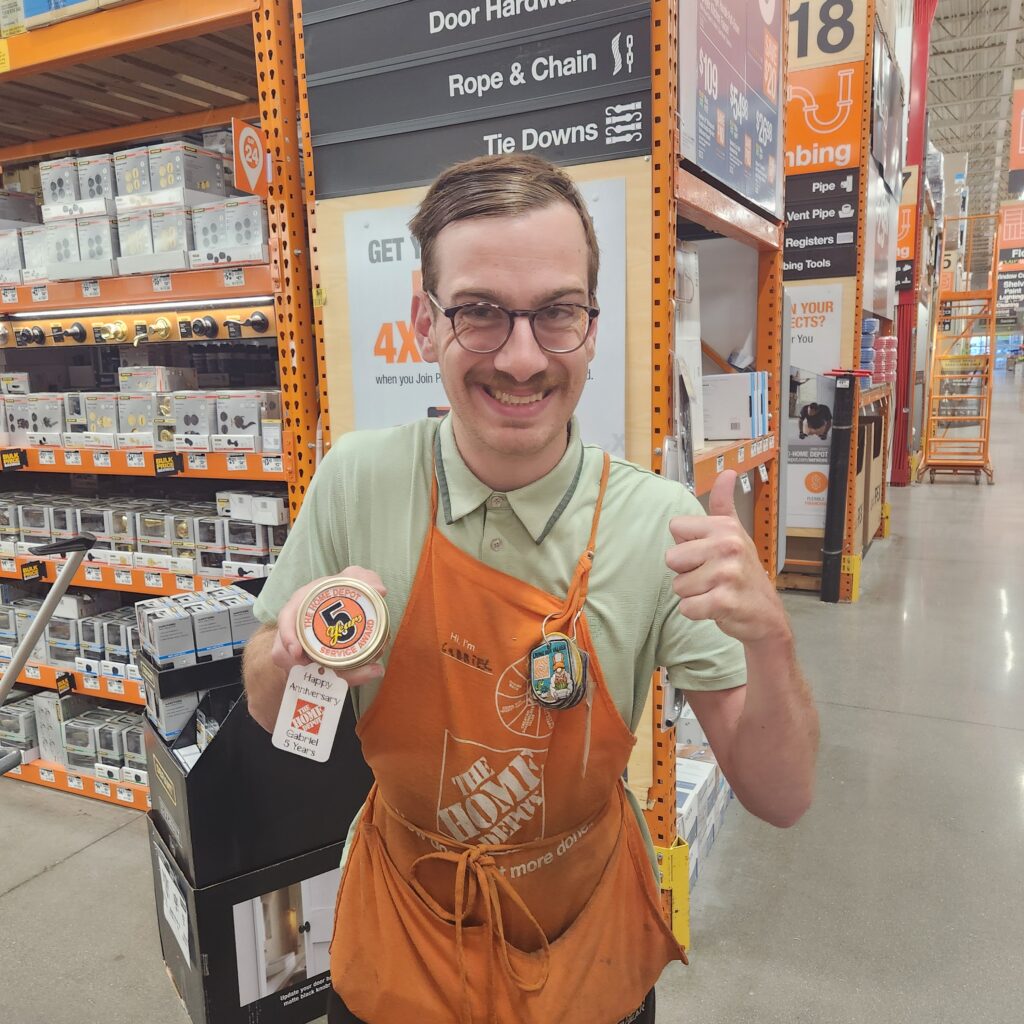
Occupational Therapy
Occupational therapy services focus on developing a child or adult's ability to perform activities of daily life, such as bathing, dressing and feeding, by enhancing or restoring function lost due to injury, disease, aging or congenital abnormality. Easterseals licensed occupational therapists incorporate the use of adaptive methods and devices, such as reachers or splints; sensorimotor rehabilitation to calm or focus attention; purposeful, everyday activity and fine motor skill development to promote independence in self-care; work and productive activities; and play or leisure skills. Treatment may aim to:
- Improve independence in self care, such as dressing, bathing, cooking or work skills
- Improve development of age-appropriate play and learning skills
- Improve fine-motor dexterity (coordination), behavior and social skills components and sensory or perceptual processing
- Develop specialized seating and positioning
- Achieve independence in vocational pursuits
- Develop workplace accommodations, assistive technology and devices
- Provide driver training for adults with disabilities
- Provide low vision rehabilitation
Services may be provided in an Easterseals outpatient clinic, child development center, or adult day care, as well as at home, at school, and in a variety of other care settings. State and federal laws determine referral requirements and funding opportunities.
Understanding Occupational Therapy
Occupational therapy is a health and rehabilitation profession focused on helping people regain, develop and build skills that are important for independent functioning, health, well-being, security and happiness. Occupational therapy practitioners work with people of all ages who, because of illness, injury or developmental or psychological impairment, require specialized assistance to [re]learn skills that enable them to lead independent and productive lives.
Occupational therapy is a major health service that can be used to manage pain, regain performance skills lost through injury, maximize independence, promote and maintain health, and prevent injury or disability.
Who Needs Occupational Therapy?
Occupational therapy is often necessary for persons who have had a stroke, arthritis, behavior problems, back injury, developmental delay, cerebral palsy, psychiatric disturbances or other conditions.
Occupational therapy is used to:
- Improve muscle strength and range of motion through activities
- Increase independence in daily living skills, such as dressing, eating, bathing and vocational pursuits
- Improve gross motor skills
- Develop play skills and leisure interests
- Help individuals adjust to the use of artificial limbs and adaptive devices
- Modify environments, including home and workplace accommodations
- Apply emerging technologies that contribute to independent living
The Occupational Therapist
The occupational therapist (or O.T.) who provides treatment is a professionally-trained specialist, a graduate of a college program accredited by the Accreditation Council for Occupational Therapy Education. Extensive supervised fieldwork provides occupational therapy students opportunities for both observation and broad clinical experience.
Some occupational therapists hold master's and doctoral degrees and work as teachers, administrators, researchers or consultants. Some specialize in a specific area, such as mental health, pediatrics or aging.
Occupational therapists who pass a national exam given by the national board certification on occupational therapy qualify to use the initials "OTR" after their name. OTRIL means they are licensed in their state, e.g. in Illinois.
Certified occupational therapy assistants sometimes are employed to provide certain aspects of treatment included in occupational therapy programs; they use the initials "COTA" after their name.
Occupational therapy aides also may be employed to assist occupational therapists. Aides are trained on the job.
Individualized Treatment Plans
To plan a client's program, an occupational therapist evaluates a person's needs, abilities and interests using interviews, assessments and medical records.
Treatment may cover one or more areas, ranging from muscle strengthening and self-care to social-emotional adjustment and use of adaptive equipment and splints.
The first focus in therapy for a person with a disability is on performing daily activities, including dressing, grooming, bathing and eating. Then an emphasis is placed on family and home responsibilities, participating in education or seeking and maintaining employment.
Therapy goals change as treatment progresses and programs are reevaluated. The occupational therapist consults and works very closely with a team that often includes a physician, other health care practitioners, the client and the client's family to set treatment objectives that are realistic and consistent with the client's needs.
Learn about occupational therapy and stroke.
Visit the American Occupational Therapy Association.


 By Mids Meinberg
By Mids Meinberg By Mids Meinberg
By Mids Meinberg





Connect with us on social media